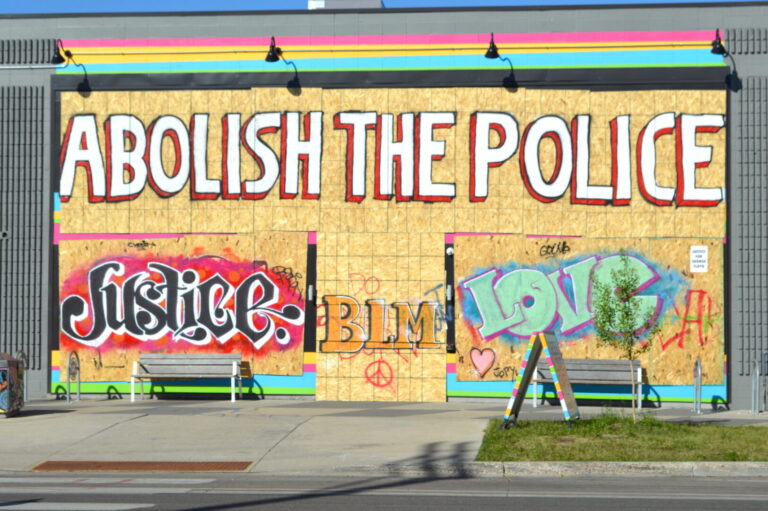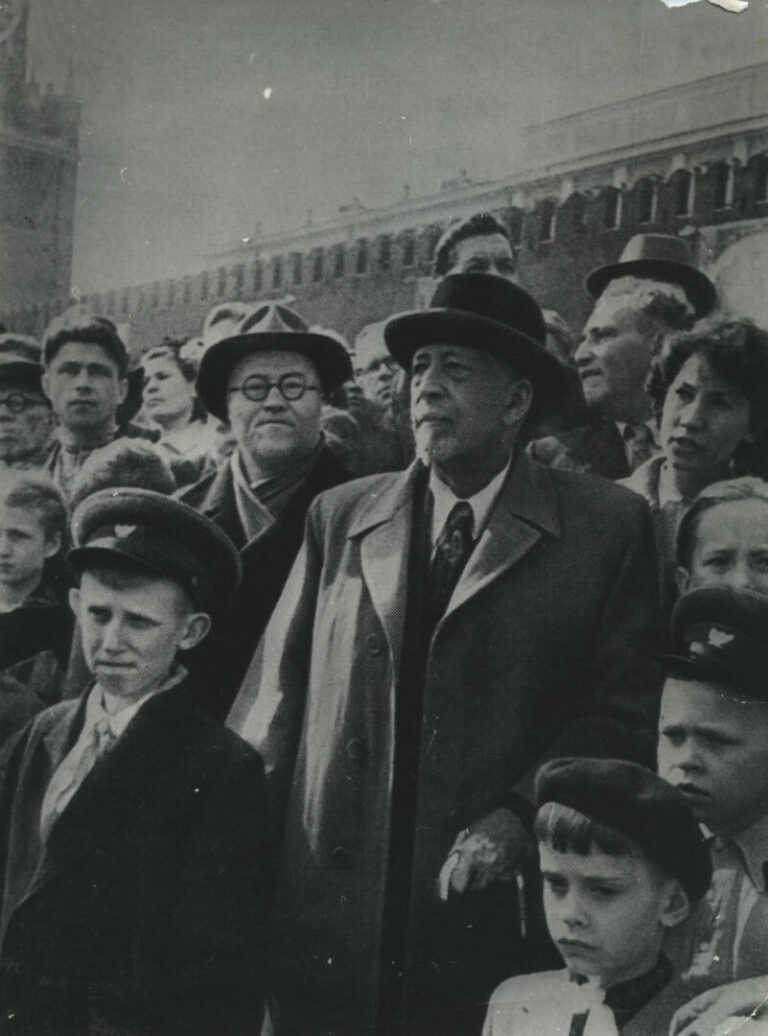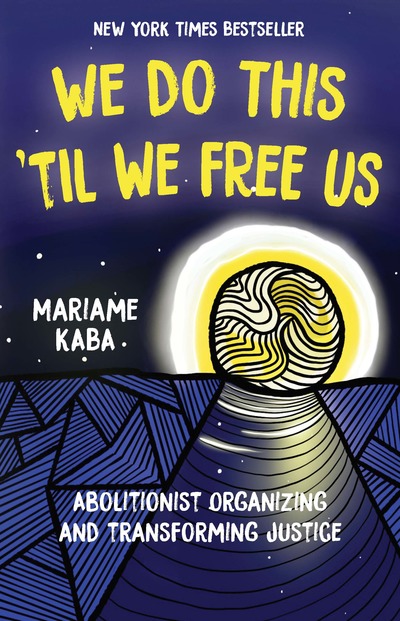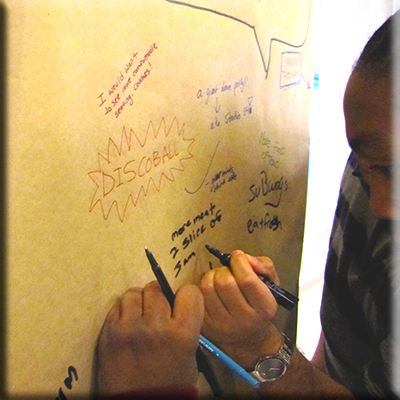Responding to Palestinian organizers’ calls to use our voice, continue to engage in conversations, and to speak out, this statement articulates what we see as the abolitionist and anti-colonial way forward—the only way we can commit to a free Palestine. Imagining and building alternatives is the future, the horizon of possibility, that Lateral, as part of the intellectual and activist project of cultural studies, is imperfectly but consistently striving toward. Here, we highlight work in this issue, including the Towards Third Worlding forum, articles, book reviews, and the second installment of the Positions podcast. We continue to welcome authors to join in this work of pushing the field of cultural studies further, towards its promise of critical inquiry matched by political engagement.
Keyword: abolition
Watchmen, Copaganda, and Abolition Futurities in US Television
Through this article, we examine the history and conventions of copaganda in the United States, and critically consider how HBO’s Watchmen has responded to and represented the historical relationship between policing and white supremacy. We argue that while Watchmen works to explicitly critique the history of white supremacist violence in US policing, the show reproduces several copaganda conventions. Watchmen depicts central law enforcement characters who commit violence as heroes, uplifts the main police character as an eventually almighty arbiter of justice, portrays white supremacist law enforcement characters as anomalous individual infiltrators (a.k.a. “bad apples”), and was created in collaboration with various members of law enforcement. After presenting this case study in contemporary copaganda, we consider how science fiction series can more meaningfully respond to the movement for police and prison abolition through representing abolitionist futures.
“Revolution of Thought and Action”: W. E. B. Du Bois’s World Search for Abolition Democracy
In recent years, scholars and activists have brought renewed attention to W. E. B. Du Bois’s concept of abolition democracy. Initially coined in Black Reconstruction (1935), to describe both a political movement and a democratic ideal, abolition democracy has been taken up theoretically by Angela Davis, Allegra McLeod, and others to describe the ongoing process of dismantling global capitalism’s political, racial, gender, and economic hierarchies, alongside the simultaneous creation of reconstructed social relations, institutions, and practices governed by universal democratic participation, instead of by force. This article suggests that Du Bois continues to draw on abolition democracy as a conceptual framework in his post-Black Reconstruction work. Tracing the outlines of this framework in his unpublished manuscript A World Search for Democracy, I demonstrate how for Du Bois, the question of democracy remains fundamentally tied to the ongoing legacies of slavery. As he continues to draw on the Reconstruction era as an historical example, Du Bois gives further shape to the idea of abolition as a process in the present (rather than an event in the past). In doing so, he recuperates the unfulfilled promise of abolition democracy as a theoretical and practical model for considering alternatives modes of citizenship beyond the material, ideal, and embodied limits of liberal bourgeois democracy. Accordingly, I argue, in World Search, we can see the outlines of abolition democracy as a three-fold project: political-economic, epistemic, and affective. Each section of this article sheds light on one of these dimensions, drawing on theoretical models from Nancy Fraser, Sylvia Wynter, Sara Ahmed, and Dylan Rodríguez. By thus abstracting the concept of abolition democracy further from the historical movement analyzed in Black Reconstruction, I propose that Du Bois’s World Search offers lessons that can inform abolitionist theory and praxis today.
Review of We Do This ‘Til We Free Us: Abolitionist Organizing and Transforming Justice by Mariame Kaba (Haymarket Books)
What if social transformation and liberation isn’t about waiting for someone else to come along and save us? What if ordinary people have the power to collectively free ourselves? In this timely collection of essays and interviews, Mariame Kaba reflects on the deep work of abolition and transformative political struggle. With chapters on seeking justice beyond the punishment system, transforming how we deal with harm and accountability, and finding hope in collective struggle for abolition, Kaba’s work is deeply rooted in the relentless belief that we can fundamentally change the world. As Kaba writes, “Nothing that we do that is worthwhile is done alone” (172).
On Witnessing a Riot
In the midst of the COVID-19 pandemic, the murder of George Floyd by Minneapolis police has sparked protests and riots around the world. The policing of the pandemic reveals the racial biases inherent to law enforcement and state-led discipline, laying bare ongoing infrastructural inequalities that render racialized subjects more vulnerable to premature death at the hands of police and public health systems alike. With the video embedded in the article, we guide readers through thirty-nine seconds of rioting in Los Angeles on May 31, 2020, shot on a mobile phone and circulated virally on Twitter. The affected body of the witness indexes both the intensity of the event and the embodied experience of the witness, establishing a relation between the two. The experiential aesthetics of the video exceeds the content and this affectivity circulates with its mediation and movement through networked platforms. Such forms of affective witnessing allow for an attunement to political struggle that occurs through what Hortense Spillers would call the analytic of the flesh. Thinking at the intersection of Black studies, affect theory, and media studies, we argue that the flesh is an affective register crucial to the building of global anti-racist solidarities towards abolition.
Editors’ Introduction: Abolition Now
Cultural studies continues to develop its schools of thought, methodologies, and disciplines that are abolitionist. The articles in this issue encounter cultural studies across a range of sites: India, Spain, China, the US, and other geographies. It points toward the importance of cultural studies in a variety of contexts, the ways that cultural studies stands as both an intense form of critique and the political possibilities for its enactment as a program of work.
Introduction: Theory
Lateral’s Theory Thread offers essays that critically explore the relationship of carceral and educational institutions—but not as alternatives to one another as often has been assumed in various kinds of social activism. The authors of these essays, Sora Han, David Stein, Shana Agid, Gillian Harkins and Erica R. Meiners, assume the tightly knotted interrelationship of prisons and schools and instead address the question posed by Han: is there something, being affirmed in the identity or identification as a “prison abolitionist” today?
Abolition: At Issue, In Any Case
Toward what does the “prison abolitionist” identity or identification strive? This thread is organized primarily around Fred Moten and Stefano Harney’s essay, “The University and the Undercommons: Seven Theses.” And we think there is not a better place to begin staging the relation between abolition and that to which we refer as “teaching”, with all the compromised valences such work can carry given the state of the educational system today. Indeed, as if to answer the above question about whether there is something affirmed by prison abolitionism, Moten and Harney seem to answer “yes”, there is something. In this essay, I would like to explore this “yes” as it emerges in Moten and Harney’s essay, and how it might unfold in how we imagine our engagements with law.
Making Anyway: Education, Designing, Abolition
This essay aims to raise some provocations and questions about the practice of attempting to teach abolition in universities and colleges that are embracing the notion of the duty of the university to the “community,” and pursuing the deep institutionalization of “civic engagement” curricula and programs, all while offering the promise of an opportunity to “do good” (and do well – i.e., still get a job).






